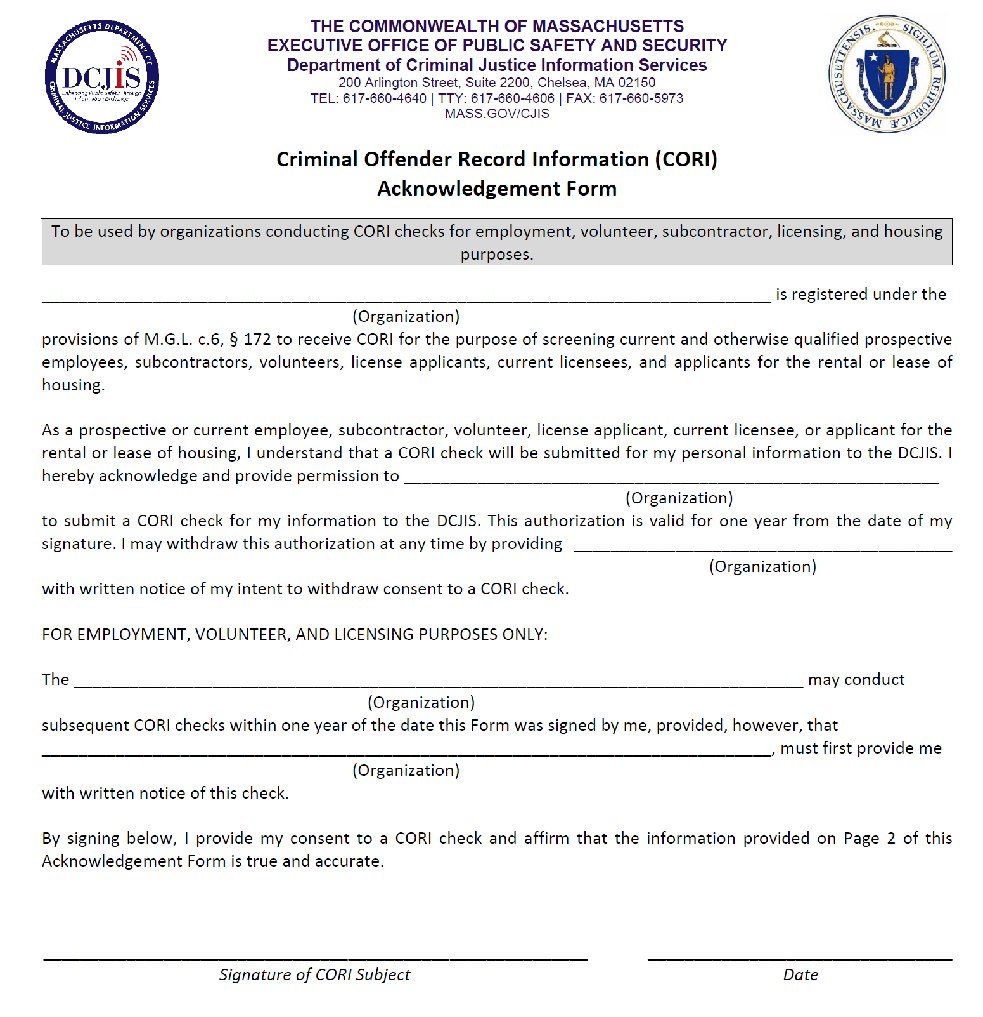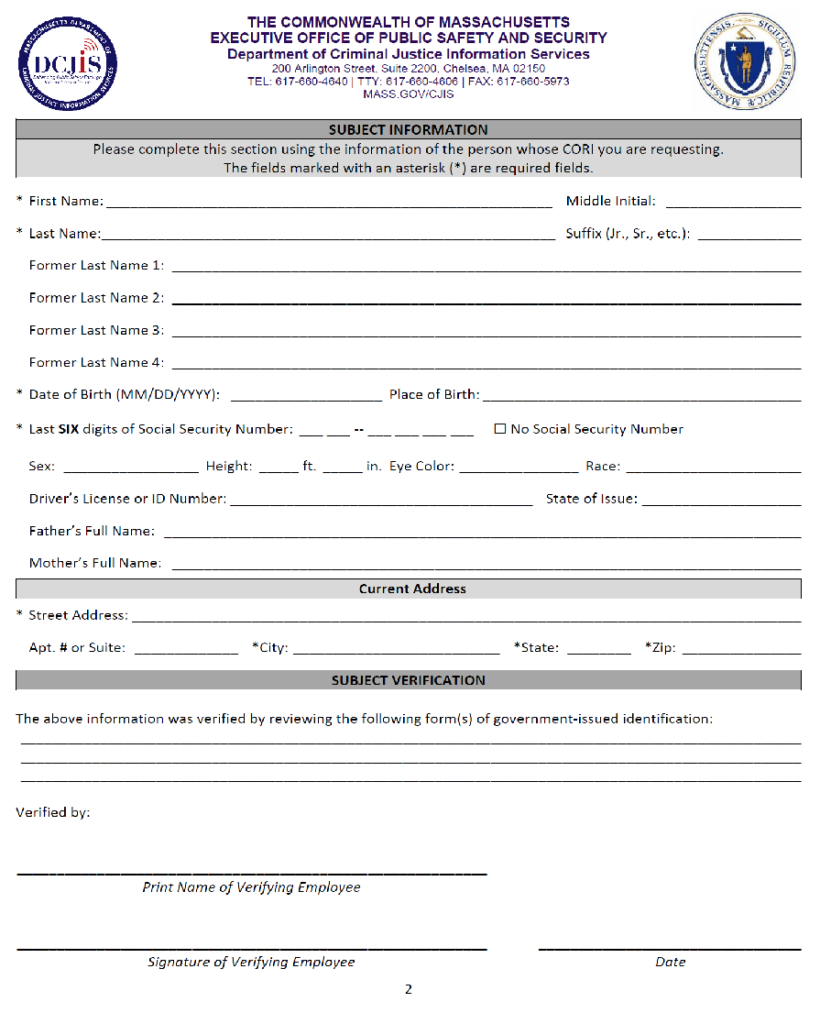What is a Code of Conduct?
Your Code of Conduct is an essential tool to help you ensure the safety of the children and youth in your care, and prevent child sexual abuse.
Home / Screening & Hiring / Screening Toolbox: Massachusetts Criminal Background Checks
Criminal background checks are an important tool in your screening and selection process—and you should ensure that you’re aware of any federal, state, or organizational requirements for background checks that pertain to your organization. While these checks are essential, they do not, by themselves, guarantee that sexual offenders will be identified, and can present significant limitations. Not all sex offenders have criminal records, and if they do, their criminal history may not include sexual offenses.
In Massachusetts, the acronym “CORI” stands for “Criminal Offender Record Information.” The term CORI is commonly used to refer to the specific criminal history information that employers, landlords, schools, and others can obtain directly from the Commonwealth via an online system called iCORI. Adult court records are public information unless sealed by court order. There are various ways that individuals and organizations can access CORI information, including by registering the organization with the online iCORI service, conducting an online search, or submitting a request form directly to the Massachusetts Department of Criminal Justice and Information Services (DCJIS). There is also a level of CORI access available to the public called an “Open” CORI. Additional details about access to Massachusetts criminal records, the CORI and iCORI process, organizational requirements, and the types of information CORI can provide can be found on the Department of Criminal Justice Information Services (DCJIS) website and the Massachusetts Court System.
Similarly, the acronym “SORI” stands for “Sex Offender Registry Information” and pertains to information about convicted and/or adjudicated sex offenders residing, working, or attending school in the Commonwealth. In Massachusetts, sex offenders are classified by the Sex Offender Registry Board (SORB) as to their risk to reoffend sexually and the degree of danger they pose to the public. A Level 1 designation means the offender has been deemed a low risk, Level 2 is an offender deemed a moderate risk, and Level 3 is designated as a high risk to re-offend. The Massachusetts Sex Offender Registry Law allows for the release of information on sex offenders categorized at Level 2 and Level 3.
While all Level 3 sex offender information is available on the SORB’s website, the website only lists Level 2 sex offenders classified after July 12, 2013. Organizations and the public can make SORI requests both from local police departments (all Level 2 and Level 3 sex offender information is available upon request) and the SORB. Agencies and organizations can also register with the SORB to utilize its online search process called “eSORI” for employment and volunteer screening purposes. More information about sex offenders and the SORI/eSORI process can be found on the websites of the SORB and the Department of Public Safety.



Code of Conduct
Your Code of Conduct is an essential tool to help you ensure the safety of the children and youth in your care, and prevent child sexual abuse.
Policies & Procedures
Sample Self-Audit Form for YSOs You can use the following “Self-Audit” form to take an inventory of your youth-serving organization’s abuse…
Screening & Hiring
Your Youth-Serving Organization’s (YSO’s) hiring process should include basic screening measures for potential staff and volunteers through…
Training
When it comes to training your volunteers, there is certain core content that is critical to include in a comprehensive training program to…
Safe Environments
In the past, youth-serving organizations needed to worry about safety only within the physical environment—the building(s) where their services…
Safe Environments
Safe Environments should be created by having clear sight lines, proper staff-to-child ratios, and safety standards for all personnel and…
Screening & Hiring
State and federal laws and regulations require specific types of screening and background checks—particularly criminal and sexual offense records…
Code of Conduct
Along with guiding appropriate behavior, your Code of Conduct should include a clear description of the lines of communication and reporting…
Screening & Hiring
Start with Basic Screening It is very important that all applicants who provide direct services and who are seeking positions of trust—either…
Training
Training Best Practices To protect the children/youth you serve, your organization needs a comprehensive framework: a set of abuse prevention…
Customized child sexual abuse prevention guidelines to meet the unique needs of any organization that serves children.
Learning Center Registration
Sign up for an account and start your learning experience.
Free Online Assessment
Let us help you find out where to start.
